Passing of a legend
The death of Alan Ball brings memories of a time when English football was driven by desire for glory, not money, says Ben Bentley.
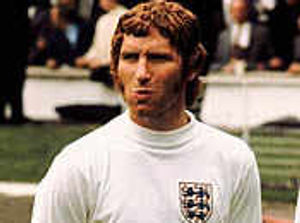
The youngest member of England's 1966 World Cup winning side, marauding midfielder Alan Ball made the greatest sporting stage his own and will be best remembered as the catalyst in changing the course of national footballing history at Wembley 41 years ago.
He died of a heart attack last night, aged 61, collapsing outside his home after attempting to tackle a bonfire in his garden.
Ball is the second member of the side that beat West Germany 4-2 to pass away. Captain Bobby Moore died of cancer in 1993.
Ball won 72 caps for his country in a 10-year England career and starred for both Everton and Arsenal.
A box-to-box midfielder, he was a key member of manager Sir Alf Ramsey's so-called 'Wingless Wonders', and was awarded an MBE in 2000 for his services to football.
Following his playing career, Ball, the son of a former player and manager, went on to success with a series of top teams as well as captaining his country and moving on - less successfully - to club management.
But aged just 21, it was Ball's fearless performance in that '66 final that forced a pivotal corner 15 minutes from time, which with typical youthful enthusiasm he promptly took.
Geoff Hurst made contact with his cross, taking a shot from the edge of the penalty area, and the ball deflected into the path of Martin Peters who rifled England 2-1 ahead.
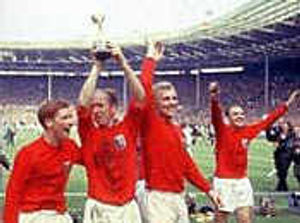
Ball was simply stunning. It was him who crossed for Geoff Hurst to produce his famous 'was-is-it-over-the-goal-line' shot that gave England a 3-2 lead.
They thought it was all over, and a few moments later it really was, as Hurst made it 4-2 and Ball followed captain Bobby Moore up the steps to the Royal Box to collect his winning medal from the Queen.
Alan Ball was born on May 12, 1945, it was when he lived in Oswestry that his childhood enthusiasm for the game matured into skill and a reputation that would lead to the shrill-voiced ace being tagged England's Denis Law.
Ball came to live in Shropshire when he was nine, attending Oswestry National C of E School and Oswestry Boys' High School until he was 15.
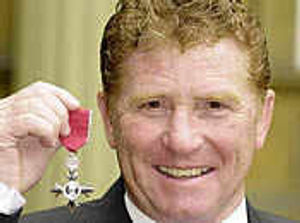
At the time, he told the Shropshire Star: "When my father was player-manager of Oswestry Town I used to train and play with the team twice a week and follow them to every game.
"I owe my success to my father and that stay in Oswestry."
Ball's Shropshire connections were deepened when he later joined Sir Alf's squad for training at Lilleshall ahead of the 1966 World Cup.
Following news of his death Mr Ball's son Jimmy, 31, and daughters Mandy Byrne, 39, and Keely Allan, 35, paid tribute to their father at his home in Warsash.
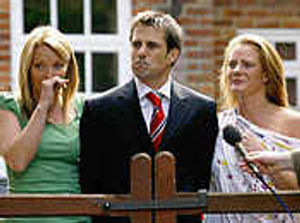
Sir Geoff Hurst said he was "totally devastated" and former England boss Kevin Keegan, a team-mate of Ball's at Southampton said he was "absolutely shocked" at the news of his death.
He added: "He was a great player but as a person he was even greater, great to be around, great fun, the life and soul of the party. A very caring person.
"I played with him when he was 38 years of age. I had already been European Footballer of the Year twice but he could teach me things that I'd never even thought about.
"He made other players great. He was a giver on the football field. Bally could make them feel like they were better than they were.
"That's what he did in the World Cup in '66. He was an inspiration to a whole generation of people. It's the end of an era. 61? It's so tragic."
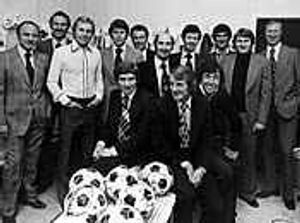
"In his early career, he was a runner, a scrapper, a fighter, a workmanlike player. A the end of his career with me, he became the best one-touch footballer in the game."
England team-mate Bobby Charlton said Ball was the driving force behind that historic '66 win.
He said: "He was probably the best player that day and if it had not been for his impact the result could have been totally different."
By Ben Bentley





